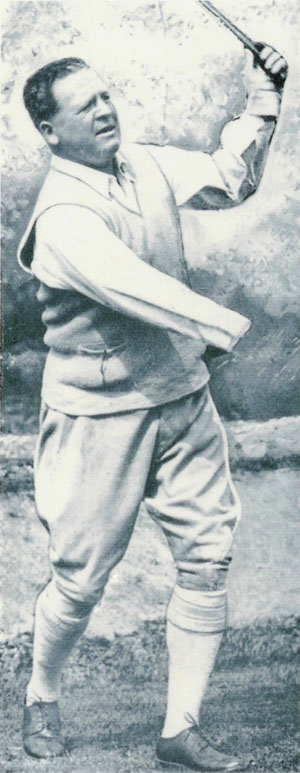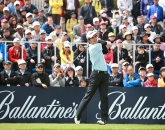A few months after the beginning of World War Two, before the Japanese entered the conflict, an extraordinary paralympics golf match took place at the then Royal Hong Kong Golf Club between two fanatical golf enthusiasts who had both lost their right arms.
 Major Melville-Smith was the Instructor of Gunnery to the British garrison. His competitor, who had had his arm blown off at Gallipoli, was the notorious “One-Arm” Sutton. Before World War One he had won the Buenos Aires Amateur Golf Championship.
Major Melville-Smith was the Instructor of Gunnery to the British garrison. His competitor, who had had his arm blown off at Gallipoli, was the notorious “One-Arm” Sutton. Before World War One he had won the Buenos Aires Amateur Golf Championship.
Having come under serious mortar fire at Gurkha Bluff, where he had lost his arm, Frank Sutton realised that the Turkish Army mortars were far superior to those of the British. While he was recovering from his wound he started work designing what became known as the Sutton mortar.
During the China War Lord era, Frank was in Manchuria manufacturing thousands of these mortars for the Old Marshal, Chang Tso-lin, whose ambition was to capture Peking. He had a problem: the Great Wall of China stood in the way.
Sutton planned to use his mortars to blow a breach in the wall. Fortunately the defenders had inadvertently left a door open: so it was a simple job. The mad Old Marshal made him a general for this magnificent feat of arms.
The Old Marshal had a tiresome habit of murdering his generals, so Frank took a golfing holiday in Shanghai. Here he won a local lottery called the Champions Sweepstake. China was beginning to get unhealthy for foreign mercenaries like Sutton. Fearing that his luck would run out Sutton went to Canada where he lost £500,000 during the awful days of the Great Depression.
In an attempt to rebuild his fortune Frank and his golf clubs returned to the Far East. The golf was fun: but otherwise he failed miserably.
During the Sino-Japanese War the Kempeitai attempted to recruit him as an agent. “No bloody fear!” growled Frank. He was arrested by the Japanese who deported him from Korea to Hong Kong where he played what was his last golf match against the one-armed major.
Frank won!
Click here to see the published article.











